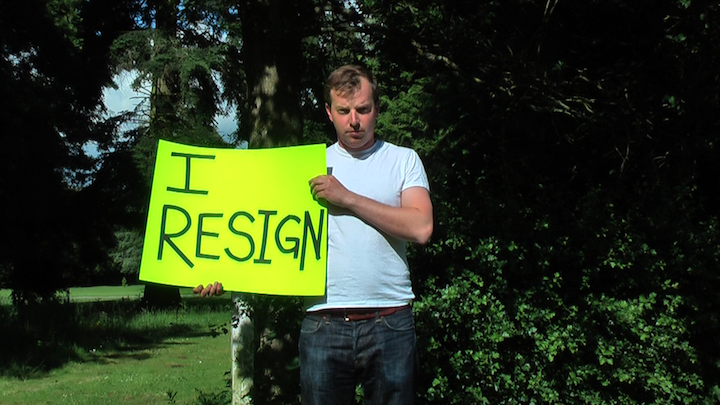
It is important for boards of directors to be aware that both real and apparent conflicts of interest or dualities of interest sometime occur in the course of conducting the business affairs of the homeowner association. The appearance of same can be troublesome - - even if there is in fact no conflict whatsoever. Conflicts occur because the many persons associated with the association should be expected to have, and do in fact generally have, multiple interests and affiliations and various positions of responsibility within the community. In these situations, a person will sometimes owe identical duties of loyalty to two or more organizations.
Conflicts are undesirable because they potentially place the interests of others ahead of the association. Conflicts are also undesirable because they often reflect adversely upon the person involved, regardless of the actual facts or motivations of the parties. However, the long range best interests of the association do not require the termination of all relationships with persons who may have real or apparent conflicts that are harmless to all individuals or entities involved.
Board decisions must be made by disinterested directors. Even the appearance of a conflict of interest should be avoided, if possible, and disclosed if unavoidable. Directors, who volunteer their services as elected representatives of their fellow homeowners, depend on the board to maintain their investment in real property.
Consistent with their duty of loyalty, directors and officers should avoid placing themselves or other representatives of the association in a situation where their personal interest may conflict, or appear to conflict, with the best interests of the association. This rule applies not only to obvious conflict situations where an individual is directly involved in both sides of the transaction, but also in more subtle situations. For example, if a director has a close relationship with a person dealing with the association, the true independence of that director may be subsequently challenged. If an actual or perceived conflict exists, the directors and officers may be required to prove their objectivity and fairness relative to the challenged transaction to avoid liability. Directors and officers should heighten their sensitivity towards conflict issues. Because individuals typically do not focus on perceived conflicts, frequent inquiries and reminders concerning potential conflict situations are suggested.
What Constitutes a Conflict of Interest?
Because directors may be involved with other organizations that may have business dealings or affiliations with their association, the following general principles have been established. Conflicts of interest include situations:
- Where the director's private affairs or financial interests are in conflict with their duties and responsibilities or result in a perception that a conflict exists
- Where a director's actions compromise or undermine the trust which the other members place in the association
- Which could impair or appear to impair the director's abilities to act in the association's interest rather than his own

Types of Conflict of Interest
- Self-dealing: In the director's association role, the individual makes decisions that financially or materially affect the director as a private citizen or the director's immediate family.
- Accepting benefits: In the director's role, the director accepts substantial gifts, bribes, services or other significant benefits that may be perceived to influence the director.
- Using confidential information: The director uses confidential information acquired because of association work to his own individual gain.
Avoiding Potential Conflicts of Interest
Conflicts of interest can include both financial and material interests. In addition to actual conflicts of interest, there can also be apparent or potential conflicts of interest. An apparent conflict of interest occurs when the answer to the following question can be answered yes. Would a reasonably informed person perceive that the performance of the director's duties and responsibilities could be influenced by their financial or material interest? For example, any time a director is also directly engaged in a project sponsored or supported by the association, there is the possibility of an apparent conflict of interest.
A potential conflict of interest is a situation that may develop into an actual conflict of interest. The following guidelines direct all actions and decisions regarding potential and actual conflicts of interest in activities sponsored or supported by the association.
- The directors act in the best interest of the members of the association
- The directors do not participate in decisions from which they could personally benefit financially or materially, apart from the general membership
- The directors regard benefits accruing to immediate family as if the director in question were to benefit
- The directors do not use their positions or information obtained therefrom to provide an unfair advantage to themselves;
Procedure When a Conflict of Interest Arises
It is the responsibility of each director to immediately disclose in writing to the chair of the board of directors the existence of any conflict of interest.
- It is the duty of the board of directors to decide whether such individual may participate in any discussion or vote on the issue that has given rise to the conflict.
- Directors must withdraw from participation in any way in those decisions in which they have a financial or material interest
- When a potential conflict is identified, the director with the conflict should be removed from the decision making process. However, if such persons must remain in meetings in order to fulfill their administrative responsibilities, they shall not participate in any discussion regarding the issue that has given rise to the conflict of interest.
- Any proposal for funding submitted by directors in which they, their relatives or their friends have a financial interest, must be fully disclosed and forwarded to a minimum of two (2) directors for evaluation.
- Should a director be found to be in a conflict or interest that has not been disclosed to the board as required in point one (1) above, the board may:
- require the director to provide full disclosure of the nature of the conflict of interest
- by special resolution, remove said director from the board.
When in doubt as to whether a conflict exists, advice from legal counsel should be obtained.
Remember, if there is ANY sign of a conflict of interest, it may completely destroy any defense you may have against a claim or accusation. Better to be safe than sorry. Avoid conflicts and, when in doubt, DISCLOSE, DISCLOSE, DISCLOSE.
 Print
Print Email
Email







